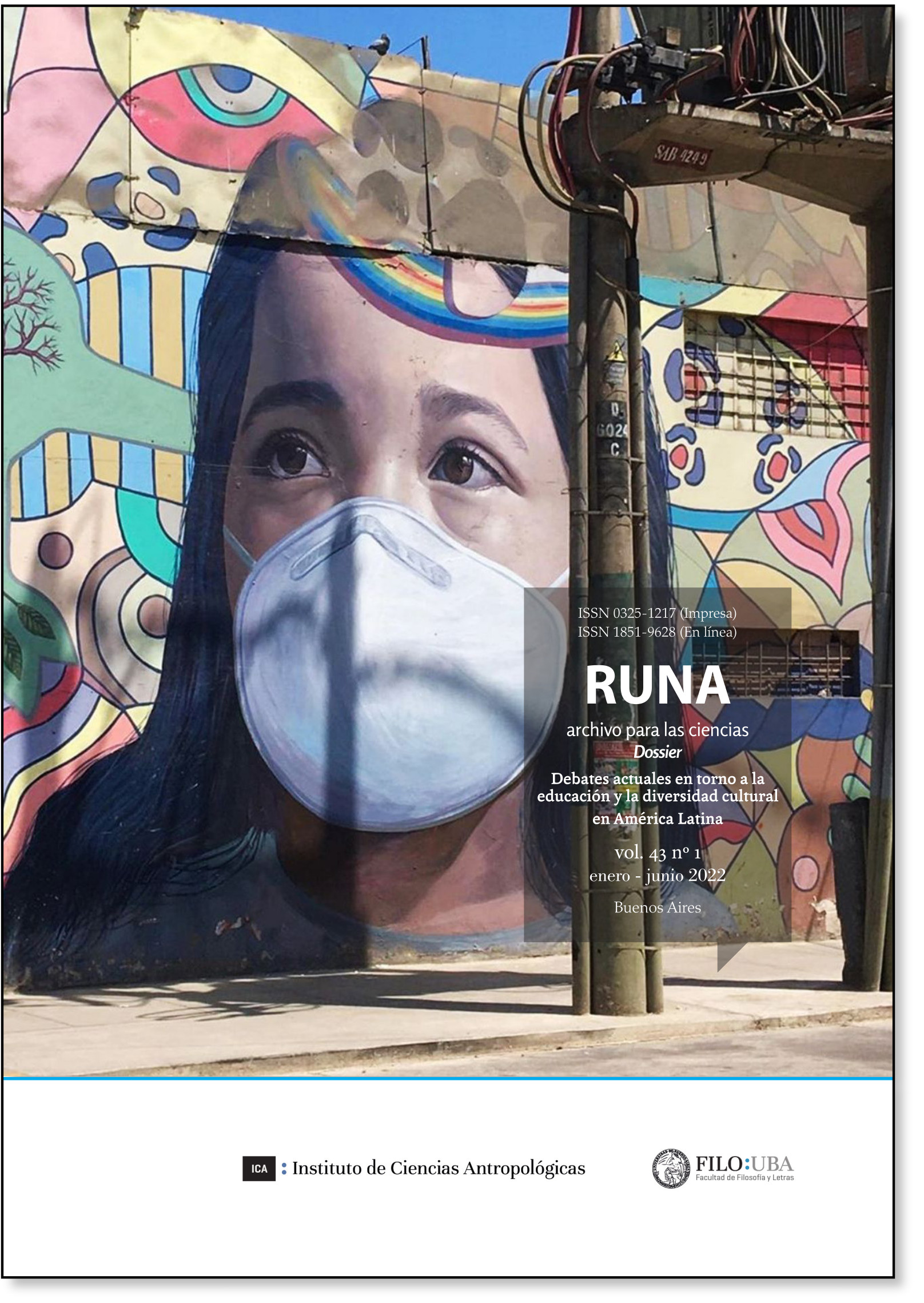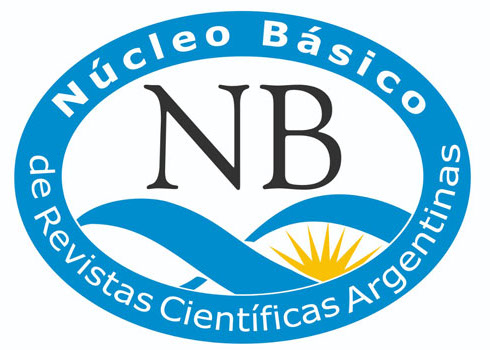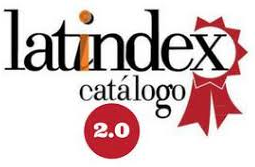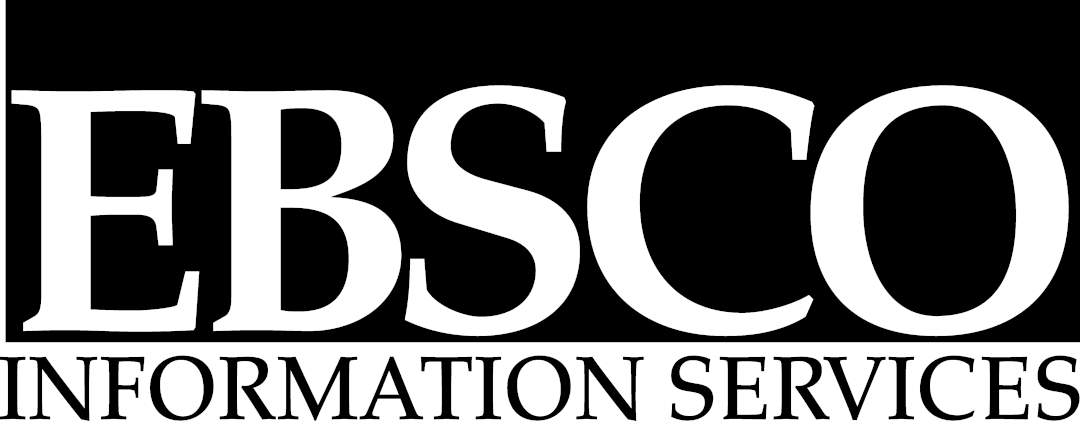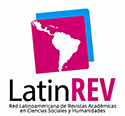Espaços ideológicos/de implementação no planejamento e política lingüística da era Covid
Perspectivas das comunidades indígenas no Sul global
Resumo
De uma perspectiva de política e planejamento lingüístico (PPL), a atual pandemia global exacerba as preocupações sobre políticas e práticas de educação lingüística que sustentam desigualdades sociais e globais entre populações e identidades lingüísticas e sociais. Há uma necessidade urgente de que os usuários de línguas, educadores e pesquisadores combatam essas desigualdades, preenchendo e abrindo espaços ideológicos e de implementação para que múltiplas línguas, literaturas, identidades e práticas floresçam na sala de aula, na comunidade e na sociedade. Aqui, usando a lente de espaços ideológicos e de implementação em escala e interativos, e focalizando quatro estudos etnográficos de educação indígena nos Andes e no México, exploro dinâmicas de la PPL que poderiam ser aproveitadas para abordar o aumento das desigualdades que a Covid trouxe no acesso à educação indígena e nas práticas indígenas de falar e ser.Downloads
Referências
Anzures Tapia, A. (2015). Evaluations in Mexico: Institutionalizing the silence of Indigenous populations. Working Papers in Educational Linguistics, 30(2), 13-33.
Anzures Tapia, A. (2020a). Culturas de Responsabilização em Educação Infantil no México. Educação & Realidade, 45(2). doi: http://dx.doi.org/10.1590/2175-623699893
Anzures Tapia, A. (2020b). The Promise of Language Planning in Indigenous Early Childhood Education in Mexico (Ph.D.). University of Pennsylvania, Philadelphia, PA.
Anzures Tapia, A. y Kvietok Dueñas, F. (2021). Authorities at play in Indigenous language reclamation: tensions and possibilities in the Yucatan Peninsula. En revisión con International Journal of Multilingual Research
Blommaert, J. (2007). Sociolinguistic scales. Intercultural Pragmatics, 4(1), 1-19.
Blommaert, J. (2020). COVID19 and Globalization. self-published Recuperado de https://www.researchgate.net/publication/339788830_COVID19_and_Globalization
Cabral, E. y Martin‑Jones, M. (2021). Critical ethnography of language policy in the global south: insights from research in Timor‑Leste. Language Policy, 20, 1-25.
Cerrón-Palomino, R. (1981). Aprender castellano en un contexto plurilingüe. Lexis, 5(1), 1-14.
Chick, J. K. (2003). Constructing a multicultural national identity: South African classrooms as sites of struggle between competing discourses. Journal of Multilingual and Multicultural Development, 23(6), 462-478.
Chimbutane, F. y Benson, C. (2012). Expanded spaces for Mozambican languages in primary education: Where bottom-up meets top-down. International Multilingual Research Journal, 6(1), 8-21.
De Korne, H. (2016). Imagining convivial multilingualism: Practices, ideologies and strategies in Diidxazá/ Isthmus Zapotec indigenous language education (Ph.D.). University of Pennsylvania, Philadelphia.
De Korne, H. (2021). Language Activism: Imaginaries and Strategies of Minority Language Equality (Vol. CSL 114). Berlin, Boston: De Gruyter Mouton.
De Korne, H. y Hornberger, N. H. (2017). Countering unequal multilingualism through ethnographic monitoring. En M. Martin-Jones y D. Martin (Eds.), Researching Multilingualism: Critical and Ethnographic Approaches (pp. 247-258). Nueva York/Londres: Routledge.
De Korne, H., López Gopar, M. E. y Rios Rios, K. (2019). Changing ideological and implementational spaces for minoritised languages in higher education: Zapotequización of language education in Mexico. Journal of Multilingual and Multicultural Development , 40(6), 504-517. doi: 10.1080/01434632.2018.1531876
Disbray, S. (2016). Spaces for learning: policy and practice for indigenous languages in a remote context. Language and Education, 30(4), 317-336.
Goffman, E. (1981). Forms of Talk Philadelphia: University of Pennsylvania Press.
Gumperz, J. J. (1982). Discourse Strategies Cambridge: Cambridge University Press.
Guzmán Sota, I. (2018). Metodologías para incorporar el diálogo de saberes en la formación superior de docentes de Pueblos Indígenas (Master’s). Universidad Peruana Cayetano Heredia, Lima, Perú.
Haugen, E. (1959). Planning for a standard language in modern Norway. Anthropological Linguistics, 1(3), 8-21.
Heller, M. (1999). Linguistic Minorities and Modernity: A Sociolinguistic Ethnography Nueva York: Longman.
Hornberger, N. H. (Ed.) (1997). Indigenous Literacies in the Americas: Language Planning from the Bottom up Berlín: Mouton.
Hornberger, N. H. (1998). Language policy, language education, language rights: Indigenous, immigrant, and international perspectives. Language in Society, 27(4), 439-458.
Hornberger, N. H. (2002). Multilingual language policies and the continua of biliteracy: An ecological approach. Language Policy, 1(1), 27-51.
Hornberger, N. H. (2006). Nichols to NCLB: Local and global perspectives on U.S. language education policy. En O. García, T. Skutnabb-Kangas, y M. Torres-Guzmán (Eds.), Imagining Multilingual Schools: Languages in Education and Glocalization (pp. 223-237). Clevedon: Multilingual Matters.
Hornberger, N. H. (2020). Reflect, revisit, reimagine: Ethnography of language policy and planning. Annual Review of Applied Linguistics, 40, 119-127. doi: 10.1017/S026719052000001X
Hornberger, N. H. (2021). Ideological and implementational spaces in Covid-era language policy and planning: Perspectives from Indigenous communities in the Global South. Journal of Multilingual Theory and Practice, 2(1), 71-97.
Hornberger, N. H., Anzures Tapia, A., Hanks, D. H., Kvietok Dueñas, F. y Lee, S. S. (2018). Ethnography of language planning and policy. Language Teaching, 51(2), 152-186.
Hornberger, N. H. y De Korne, H. (2018). Is revitalization through education possible? En L. Hinton, L. Huss, y G. Roche (Eds.), The Routledge Handbook of Language Revitalization (pp. 94-103). Nueva York: Routledge.
Hornberger, N. H. y Johnson, D. C. (2007). Slicing the onion ethnographically: Layers and spaces in multilingual language education policy and practice. TESOL Quarterly, 41(3), 509-532.
Hult, F. M. (2010). Analysis of language policy discourses across the scales of space and time. International Journal of the Sociology of Language, 202, 7-24.
Hult, F. M. y Hornberger, N. H. (2016). Revisiting orientations in language planning: problem, right, and resource as an analytical heuristic. Bilingual Review/Revista Bilingüe, 33(3), 30-49.
Huss, L. (2008). Revitalization through Indigenous education: a forlorn hope? En N. H. Hornberger (Ed.), Can Schools Save Indigenous Languages? Policy and Practice on Four Continents (pp. 125-135). Basingstoke: Palgrave Macmillan.
Hymes, D. H. (1964). Introduction: Toward ethnographies of communication. American Anthropologist, 66(6), 1-34.
Hymes, D. H. (1972). On communicative competence. En J. B. Pride y J. Holmes (Eds.), Sociolinguistics: Selected Readings (pp. 269-293). Harmondsworth: Penguin Books.
Hymes, D. H. (1979). Ethnographic monitoring. En E. J. Brière (Ed.), Language Development in a Bilingual Setting (pp. 73-88). Los Ángeles: National Dissemination and Assessment Center.
Hymes, D. H. (1992). Inequality in language: Taking for granted. Penn Working Papers in Educational Linguistics , 8(1), 1-30.
Illich, I. (1970). Deschooling Society Londres: Marion Boyers Publishers.
Illich, I. (1973). Tools for Conviviality Nueva York: Harper and Row.
Jie, D. y Blommaert, J. (2009). Space, scale and accents: Constructing migrant identity in Beijing. Multilingua, 28(1), 1-24.
Johnson, D. C. (2010). Implementational and ideological spaces in bilingual education language policy. International Journal of Bilingual Education and Bilingualism, 13(1), 61-79.
Kvietok Dueñas, F. (2015). Negotiating ideological and implementational spaces for Indigenous languages in Peru. Working Papers in Educational Linguistics , 30(1), 21-41.
Kvietok Dueñas, F. (2019). Youth Bilingualism, Identity and Quechua Language Planning and Policy in the Urban Peruvian Andes (Ph.D.). University of Pennsylvania, Philadelphia, PA.
Kvietok Dueñas, F. (2020a, June 17, 2020). Creating language deniers in Quechua education. Anthropology News website https://www.anthropology-news.org/articles/creating-language-deniers-in-quechua-education/
Kvietok Dueñas, F. (2020b). Recreando la enseñanza del quechua en una escuela urbana: Un caso de los Andes peruanos. ReVista: Harvard Review of Latin America Recuperado de https://revista.drclas.harvard.edu/
Kvietok, F. (2021a). Bilingüismo e identidad juvenil: aportes etnográficos para la enseñanza del quechua en secundarias urbanas y para una EIB urbana. Revista Peruana de Investigación Educativa, 13(14), 25-52. doi: https://doi.org/10.34236/rpie.v13i14.292
Kvietok Dueñas, F. (2021b). “Llegando a secundaria les ha dado amnesia…ya no quieren hablar”: Indigenous speakerhood socialization and the creation of language deniers in Quechua education. Linguistics and Education, 61 doi: https://doi.org/10.1016/j.linged.2020.100888
Limerick, N. (2015). Becoming Multicultural Emblems: The Politics and Poetics of Quichua Language and Culture in Intercultural Bilingual Education in Ecuador (Ph.D.). University of Pennsylvania, Philadelphia, PA.
Limerick, N. (2018a). Attaining multicultural citizenship through Indigenous-language instruction: Successful Kichwa misfires and the modeling of modernist language ideologies in Ecuador. Journal of Linguistic Anthropology 28(3), 313-331. doi: https://doi.org/10.1111/jola.12195
Limerick, N. (2018b). Kichwa or Quichua? Competing alphabets, political histories, and complicated reading in Indigenous languages. Comparative Education Review, 62(1), 103-124.
Limerick, N. (2019a). Kichwa o quichua? Historia política de alfabetos y aplicación de los procesos de lectura y escritura de las lenguas Indígenas en América Latina / Kichwa or quichua? Political histories of alphabets for Indigenous languages in Latin America and Effects on reading and writing in Ecuador. En M. Haboud (Ed.), Lenguas en Contacto: Desafíos de la Diversidad (pp. 303-345). Pontificia Universidad Católica de Ecuador (PUCE).
Limerick, N. (2019b). Three multilingual dynamics of Indigenous language use that challenge standardized linguistic assessment. Language Assessment Quarterly 16(4-5), 379-392. doi: 10.1080/15434 303.2019.1674313
Limerick, N. (2020a). Los movimientos indígenas en Ecuador: La lucha por enseñar Kichwa en las escuelas. ReVista: Harvard Review of Latin America Retrieved from https://revista.drclas.harvard.edu/
Limerick, N. (2020b). Speaking for a State: Standardized Kichwa greetings and conundrums of commensuration in Intercultural Ecuador. Signs and Society, 8(2), 185-219.
Limerick, N. (2020c). What’s the linguistic variety of audit culture? Administering an Indigenous language proficiency exam in Ecuador’s Intercultural Bilingual Education. Anthropology & Education Quarterly, 51(3), 282-303.
Limerick, N. (2021). Recognizing Indigenous Languages: Kichwa and the Double Binds of Intercultural Bilingual Education in Ecuador: Oxford University Press.
Limerick, N. y Hornberger, N. H. (2019). Teachers, textbooks, and orthographic choices in Quechua: Comparing bilingual intercultural education in Peru and Ecuador across decades. Compare: A Journal of Comparative and International Education, 51(3), 319-336. doi: 10.1080/03057925.2019.1613149
López, L. E. (2021). Otra Peste Más: La Subalternidad de las Lenguas Originarias en Tiempos de Pandemia Lima: TAREA Asociación de Publicaciones Educativas.
Macías, R. (1979). Language choice and human rights in the United States. En J. Alatis (Ed.), Languages in public life (pp. 86-101). Washington, D.C.: Georgetown University Press [Roundtable on Languages and Linguistics].
Manan, S. A., David, M. K. y Channa, L. A. (2019). Opening Ideological and implementational spaces for multilingual/plurilingual policies and practices in education: a snapshot of scholarly activism in Pakistan. Current Issues in Language Planning, 20(5), 521-543. doi: https://doi.org/10.1080/14664208.2018.1543162
Maurial, M. y Suxo, M. (2011). Does intercultural bilingual education open spaces for inclusion at higher education? En M. R. Hawkins (Ed.), Social Justice Language Teacher Education (pp. 49-62). Bristol: Multilingual Matters.
Mortimer, K. S. (2013). Communicative event chains in an ethnography of Paraguayan language policy. International Journal of the Sociology of Language , 219, 67-99.
Mortimer, K. S. y Wortham, S. (2015). Analyzing language policy and social identification across heterogeneous scales. Annual Review of Applied Linguistics, 35, 160-172.
Piller, I., Zhang, J. y Li, J. (2020). Linguistic diversity in a time of crisis: Language challenges of the COVID-19 pandemic. Multilingua: Journal of Cross-Cultural and Interlanguage Communication, 39(5), 503-515. Recuperado de https://doi.org/10.1515/multi-2020-0136
Ricento, T. K. y Hornberger, N. H. (1996). Unpeeling the onion: Language planning and policy and the ELT professional. TESOL Quarterly , 30(3), 401-428.
Ruiz, R. (1984). Orientations in language planning. NABE Journal, 8(2), 15-34.
Shen, Q. (2020). Commentary: Directions in language planning from the COVID-19 pandemic. Multilingua: Journal of Cross-Cultural and Interlanguage Communication , 39(5), 625-629. Recuperado de https://doi.org/10.1515/multi-2020-0133
Tollefson, J. W. (1991). Planning Language, Planning Inequality: Language Policy in the Community Londres: Longman.
Wang, G. y Bahry, S. (2020). Multilingual and Multimodal Literacy Responses to COVID-19: Empowering Minority Communities in Yunnan and Gansu Paper presented at the E-Forum on Chinese Language Resources and Multilingual Education, E-Forum.
Wortham, S. (2005). Socialization beyond the speech event. Journal of Linguistic Anthropology , 15(1), 95-112.
Wortham, S. (2008). Linguistic anthropology of education. Annual Review of Anthropology, 37, 37-51.
Zavala Cisneros, V. (2011). Racialization of the bilingual student in higher education: A case from the Peruvian Andes. Linguistics and Education, 22(4), 393-405.
Zavala, V. (2014). An ancestral language to speak with the “Other”: Closing down ideological spaces of a language policy in the Peruvian Andes. Language Policy, 13(1), 1-20.

Runa, archivos para las ciencias é uma publicação do Instituto de Ciencias Antropológicas, Facultad de Filosofía y Letras, Universidad de Buenos Aires e é distribuída sob o título Creative Commons Attribution 4.0 International License.
Runa mantém o seu compromisso com as políticas de Acesso Aberto à informação científica, considerando que tanto as publicações científicas como a investigação financiada com fundos públicos devem circular livremente na Internet, gratuitamente e sem restrições.
Os conteúdos e opiniões expressos nos artigos publicados são da exclusiva responsabilidade dos seus autores.
